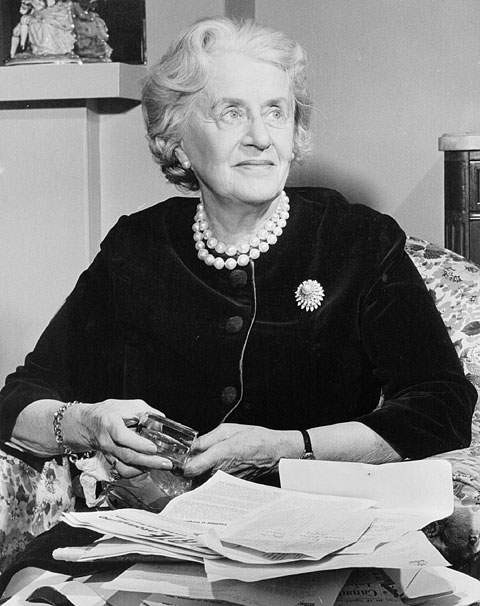Thérèse Casgrain

B. July 10, 1896, Montreal, Quebec
D. November 3, 1981, Montreal, Quebec
Thérèse Casgrain was the first woman to lead a provincial political party in Canada. From a young age, Thérèse was politically influenced by her father, a Member of Parliament dedicated to the well being of his constituents. Her interest grew when she married a Liberal politician, and actively helped with his campaign in the 1920s.
Thérèse was extremely active in the enfranchisement of women in Quebec, as well as an advocate for women’s rights across Canada. She was elected President of the Ligue des droits de la femme, which focused on a broad range of women’s issues in Quebec. She further established the Ligue de la jeunesse féminine to involve young Quebec women in social work in the time between leaving school and getting married. Her years of hard work paid off when, after 14 attempts, women gained the right to vote in Quebec on April 25, 1940.
Although never abandoning the cause of women, after that point Thérèse broadened her spectrum of work. She ran for Parliament as a Liberal candidate in 1942, but lost the election. By 1946 she had left the Liberal Party for the Co-operative Commonwealth Federation Party (CCF), as she believed that the other parties were not focused on the common good of Canadians. In 1951, Thérèse ran for and won the provincial party presidency of the Parti social démocratique du Québec, the provincial wing of the CCF, making her the first woman to lead a provincial political party in Canada. She would hold this post until 1957.
Throughout her career, Thérèse took the lead in founding advocacy groups for several causes. In 1960, she founded the League of Human Rights; in 1961 she founded the Quebec branch of the Voice of Women to protest nuclear weapons; and in 1966, she founded the Fédération des femmes du Québec. She was also the president of the Quebec branch of the Consumers’ Association of Canada.
In 1970, Prime Minister Pierre Trudeau appointed Thérèse to the Senate. Although she was 74 when appointed, she took on the challenge to do as much work as she could before her forced retirement at the age of 75. Thérèse was a strong advocate of using government, and further, politics to achieve change for the greater common good. She believed that Canada should strive to equality between its French and English factions, as well as achieving equality for women.
